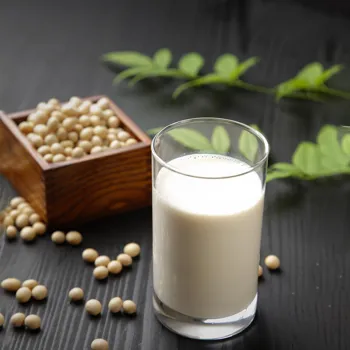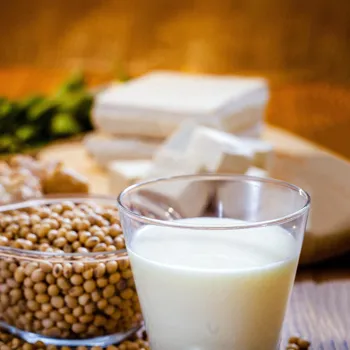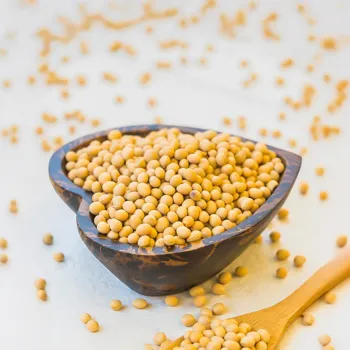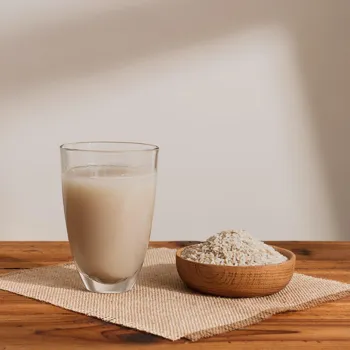Unveiling Soy's Truth: 8 Nutritional Facts to Know. Dive into the myths vs. facts about soy's impact on health!
For generations, soy has been a staple in many Asian diets, but in India, its popularity is
steadily growing. From soy milk and tofu to soybean oil, we see soy products popping up everywhere. But amidst the buzz, a big question lingers: "Is soy truly good for us?

" Well, let's shed some light on this humble bean and explore eight facts about its nutritional profile to help you make informed choices. Forget the myths, let's talk facts!
Soybeans: Nutrient powerhouse with complete protein & essential minerals for health
Soybeans boast a stellar nutritional resume. First off, they are a complete plant-based protein source. This means they contain all nine essential amino acids that our bodies cannot produce on their own. Protein is crucial for building and repairing tissues, and soy delivers it in spades.

Beyond protein, soy is a good source of fiber, which aids digestion and helps keep you feeling full. Also, it is packed with vitamins and minerals like iron, calcium, magnesium, and phosphorus. These nutrients are vital for maintaining strong bones, healthy blood, and overall well-being.
Now, that is an impressive start.
Soy isoflavones mimic estrogen, with mixed effects on hormones, generally safe in moderation
Soy contains isoflavones, which are plant-based compounds that mimic estrogen. This is where some of the controversy around soy comes in. Some people worry that isoflavones can disrupt hormone balance.

However, research suggests that isoflavones can have both estrogen-like and anti-estrogen effects, depending on the individual and the situation. In some cases, they might even offer protective benefits.
It's essential to remember that soy isoflavones are much weaker than the estrogen produced by the human body. For most people, moderate soy consumption does not pose a risk to their hormonal health.
Soy benefits heart health by lowering LDL cholesterol
Let's talk about heart health. Soy has been shown to have potential benefits in this area. Studies suggest that soy protein can help lower LDL (bad) cholesterol levels, which is a major risk factor for heart disease.

Additionally, soy contains compounds that may help improve blood vessel function and reduce inflammation, further contributing to a healthy heart. Incorporating soy products into your diet, as part of a balanced eating plan, might be a wise move for your cardiovascular system.
Opt for whole soy foods like edamame or tofu for the greatest benefits.
Soybeans offer versatile options for delicious and healthy meals
Soybeans are incredibly versatile, and that is a big plus. Tofu, made from coagulated soy milk, is a blank canvas that takes on the flavors of any dish. Edamame, steamed soybeans in their pods, are a delicious and healthy snack.

Soy milk, a plant-based alternative to dairy milk, can be used in smoothies, coffee, or simply enjoyed on its own. Tempeh, a fermented soy product, has a firm texture and nutty flavor, making it a great meat substitute.
With so many options, it is easy to find a way to incorporate soy into your meals and enjoy its nutritional benefits. From a simple stir-fry to a creamy dessert, soy can be the star of the show.
Soy offers benefits but be cautious of allergens
While soy offers numerous benefits, it is essential to be mindful of potential allergens. Soy is one of the eight major food allergens, so some people may experience allergic reactions after consuming it. Symptoms can range from mild skin rashes to more severe reactions like difficulty breathing.

If you suspect you might be allergic to soy, it is best to consult with a doctor or allergist for proper testing and guidance. Always check food labels carefully to identify soy-containing ingredients and avoid cross-contamination if you have a known allergy.
Choose whole soy foods for best nutrition, avoid processed options
Not all soy products are created equal. Products like refined soybean oil and heavily processed soy snacks may not offer the same nutritional benefits as whole soy foods. These products often contain added sugars, unhealthy fats, and other additives that can negate some of soy's health benefits.

Stick to minimally processed options like tofu, edamame, tempeh, and soy milk for the best nutritional value. Read labels carefully and choose products that are made with whole soybeans and have minimal added ingredients. Remember, quality matters when it comes to soy.
AI Generated Content. Glance/InMobi shall have no liability for the content












